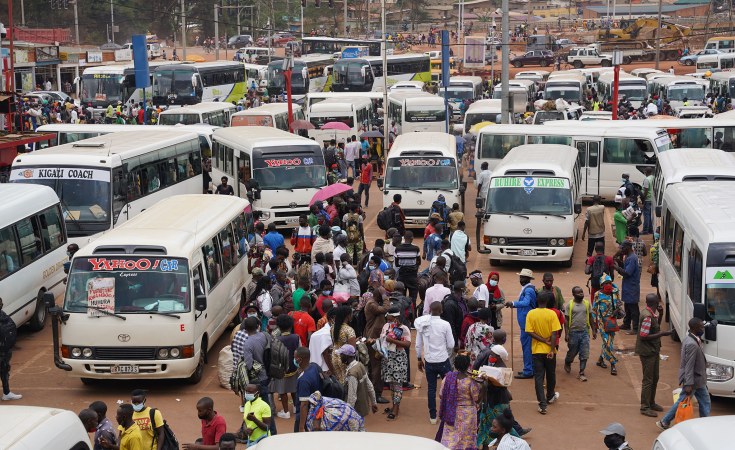During the 18th National Dialogue Council, Umushyikirano, held earlier this week, from February 27 to 28, one of the key issues that came up was the issue of poor public transport.
Several questions were asked by citizens on what authorities are doing to address the challenges in the public transport sector, especially the shortage of buses. The Minister of State for Infrastructure, Patricie Uwase, revealed that more than 300 new public transport buses will be introduced in Kigali in the next three months to ease the challenges.
Once the buses arrive, they are expected to help address the shortage of buses and reduce the queues during peak hours, especially in the evening but residents of several suburbs of Kigali, which are not served by public transport, remain less optimistic.
"I will still have to walk because I think even those buses come, they will not ply certain routes," said Anglebert Mugirabanga, a resident of Kagugu, who has to walk day-to-day from his home to the Gishushu area of town, where he works from.
Mugirabanga is not alone.
He is one of many residents of Kigali who live in affluent suburbs of Kigali that are not served by public transport, because the majority of the residents own cars.
"Public transport shuns places like Kagugu, Nyarutarama and Kibagabaga because there are no passengers. So, I walk from Kagugu passing through Gaculiro, through Nyarutarama, then Gishushu and back in the evening," he explained.
If he were to use the other alternative, moto-taxis, it would cost him about Rwf2,000 every day. And that is quite costly. The option is to walk.
The same applies to Claire Iribagiza, a resident of Nyabisindu, neighbouring Kibagabaga, who has to walk from her home to Kacyiru, where she works as a security guard. Iribagiza is also forced to walk home in the evening despite the fact that she is weary.
To get a bus, she has to walk to the nearest bus stop, which is in Remera, through the Rwanda Motor Vehicle Inspection unit, all the way to Chez Lando, or to Kimironko bus terminal and the two places are almost the distance she has to walk to work in Kacyiru.
"From my salary, I cannot afford a motorbike daily. So, I habitually have to walk to work. It becomes challenging during the rainy season. I have to go seeking shelter, sometimes darkness finds me on the way," the mother of two said.
David Mupende, a bus driver with one of the local operators, said that plying routes to locations such as Nyarutarama, Kagugu and others, where most residents own their cars, is a loss making gamble because there are almost no passengers in such zones of the city.
"It is true that some people find themselves living in affluent places such as Gaculiro, Kagugu, Nyarutarama, Kibagabaga, Rebero and others yet they don't own cars. These are not necessarily poor people," he said.
"They could be expatriates or people living in apartments in these areas who don't necessarily have cars but they are few. When we try these routes, we only make losses, even during peak hours."
The company he worked for opened routes to some of these locations but within a few months it stopped.
"The cost of fuel is very high. You cannot afford to run a route with an empty bus," he said, adding that, perhaps, city authorities should consider bringing in smaller buses for such locations.
Relief for commuters
Following the announcement that 300 buses will be brought to address the shortage, citizens are confident that the time they spend waiting for buses and the congestion inside buses will be decreased considerably.
In Kimironko bus terminal, commuters line up for almost an hour waiting for a bus to take them to their respective destinations.
But for Amina Kamanzi, a trader in a nearby marketplace, the delay is not her biggest problem.
"For me, the problem is the overcrowding in buses. As a Muslim woman, it makes me really uncomfortable, traveling for a long distance, rubbing myself against men. I hope that when the new buses come, the congestion will end," the resident Kivugiza, in Nyarugenge, said.
According to the Rwanda Utilities Regulatory Authority (RURA), in 2022, the average time to wait for a bus was between 30 minutes and an hour.
But Kamanzi said that sometimes it can take even much longer before a commuter gets a bus.
This happens especially during the rainy season, where people move almost at the same time.
According to the City of Kigali, at least 500 buses are needed to fill the vacuum in the public transport sector.


